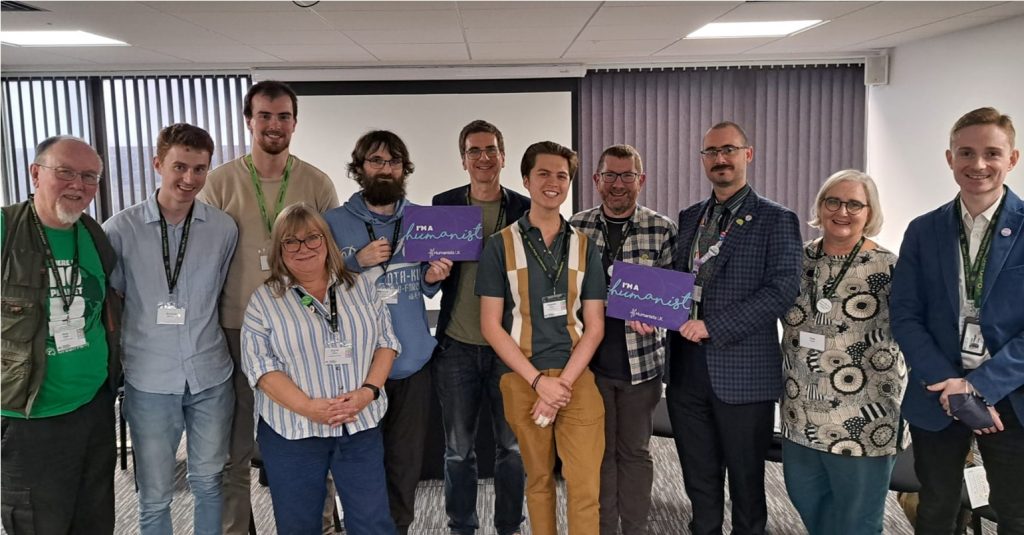Introducing Green Humanists

At October’s Green Party Conference in Brighton, the Green Humanists took an important step forward and adopted a constitution. The group is now organised on a formal basis and Party members are warmly invited by its provisional steering committee to join and get involved.
What are humanists, and why should they organise?
Humanists are non-religious people who seek to lead ethical and fulfilling lives based on evidence, experience, and empathy. They are concerned about the welfare of humans and other sentient animals, with the ‘human’ part of humanism affirming the responsibility of people to determine how to live and better comprehend reality. Consequently, they reject supernatural explanations and trust the scientific method when it comes to understanding the universe.
Given the breadth of their moral outlook, and the insight science provides about the interconnectedness of all life on Earth, it should be little surprise that many environmentalists are humanists. And due to their interest in social action, they have and can make a disproportionately large contribution to politics too.
Historically, humanists have advocated for things like human rights, inclusion on the grounds of religion or philosophical belief, free inquiry, and progressive policies more generally. Influential British humanist political philosophers and writers include John Stuart & Harriet Taylor Mill, George Orwell, Karl Popper, Bertrand Russell, and Mary Wollstonecraft. Important architects of the welfare state meanwhile include humanist politicians, such as Clement Attlee, Nye Bevan, and William Beveridge. And like the Labour Party, Conservatives, and Liberal Democrats, the Green Party of England of Wales now also has its own dedicated humanist group.
Boosting humanists’ contribution to Green politics
Thankfully, the Party has not overlooked humanists and, reassuringly, it already aligns with many explicit humanist concerns. Given humanists’ inclusive and progressive orientation and their growth in numbers, it is important they should continue to be taken seriously. Major change that has occurred to society’s religious landscape is highlighted by the British Social Attitudes survey, which last found 53% of the British public describing themselves as not having a religion.
In due course, Green Humanist members will confirm what the group seeks to achieve. But for now, the formal aims already adopted in the constitution provide a good strategic steer to work with those of other religions or beliefs to contribute even more positively towards Party policy, priorities, and decision making, along with promoting group members’ concerns within the wider humanist movement.
Getting involved
As a new group, now’s an excellent time for people to get involved. If you are a party member and would like to join the growing group, just submit your name and local party to greenhumanists@gmail.com. The first committee elections will be conducted soon. Whether you’re interested in becoming a member, wishing to join the committee, or exploring other ways to contribute, please get in touch. The group is also on Facebook (with accounts recently set up on Twitter and Threads too).
PS. We hope you enjoyed this article. Bright Green has got big plans for the future to publish many more articles like this. You can help make that happen. Please donate to Bright Green now.

Leave a Reply